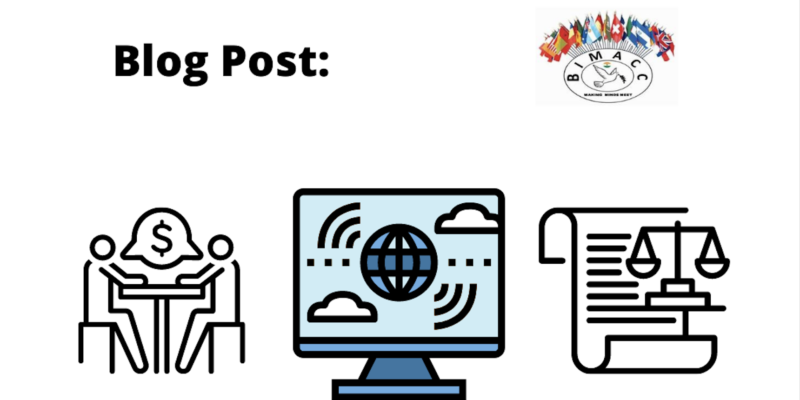
Analysis of the Status Quo of China’s Internet Arbitration By Mr Tianwei Zhang and Ms Bohan Liu
I. Overview of Internet Arbitration
Internet arbitration is a new case trialing form that uses Internet technology to assist the whole arbitration process. From previous arbitration practices, we can see that Internet arbitration requires certain typical preconditions: Firstly, arbitration institutions must have an Internet arbitration system of their own and secondly, a separate Internet arbitration rule for Internet arbitration activities shall be issued.
It is obvious to us that the development of internet arbitration has two main directions: first, it is the batch processing of similar cases. Second is a remote online case handling system represented by video court sessions.
Through years of practice, arbitration has also undergone constant changes in the aspect of the application of Internet technology. People’s perspective of Internet arbitration has also changed a lot. Through research and comparative analysis, a conclusion can be drawn that the arbitration rules of various arbitration institutions are also very different: As early as the year of 2009, the internet arbitration rules mainly dealt with cases regarding internet disputes such as Web-domain cases, e-commerce cases etc. Until 2019, the newly released internet arbitration rules basically define Internet arbitration more as a dispute resolution method.
II. Possibilities and limitations of big data-assisted arbitration
First of all, regarding the application of big data, China has already been very mature in this field. The verification of corporate identity and the identity of natural persons have already been achieved. However, this is still a problem in international arbitration and transnational cases. For example, if a foreigner has never been to China or has no entry record at all, or a foreign company has never conducted any business in China, the natural persons and the company’s identity verification might be a problem.
III. Issues regarding using artificial intelligence in the generation of arbitration awards
The derivation process of legal adjudication is often complicated while the result is relatively simple. The document of an award is mainly composed of claims, evidence and argumentation from each party as well as the tribunal court while the verdict is quite short and only takes up a small space.
When making a ruling, theoretically, each party’s claim, evidence materials involved in the case, relevant rules, regulations and laws shall be all taken into consideration. This is something that cannot be achieved by simply using technology and network derivation. The arbitrator’s cautious reasoning is indispensable.
At present, we are trying to use the Python language to program an online intelligent document system. Python language is a kind of artificial intelligence language that many people think may become popular in system designing in the future. However, for the current moment, the final award document generated by Python is relatively rigid and unsatisfactory.
With time passing by, it may get better. In the foreseeable future, if artificial intelligence can assist referees to play a better role, a very important prerequisite is the support of big data. However, the big data of the arbitration industry is so far not public. So, at present, what we can see is only slow progress and this kind of progress may not be able to keep up with the increasing number of cases and the current technological and economic development.
Here, I also want to compare the difference between machines and the human brain in the process of refereeing. If machines can read a contract and make a ruling, the cost of the first case is going to be very high, because we need to design a special programming code and the workload of code designing has far exceeded the workload of legal workers of the referee.
Moreover, machines are actually better at repetitive and logical tasks. However, for new things, they need human thinking to help. In addition, when the arbitration issue involves human emotion and value judgment, it would be hard for the machine to understand.
Of course, machines also have advantages over human. After the working process of the machine been determined, the results for each case may be relatively stable and the data can be accumulated, and human’s judgment might be affected by personal experience and personal interest
– Mr. Tianwei Zhang and Ms. Bohan Liu
Mr. Tianwei Zhang is the CEO of Beijing ZhiZhong Technology Co., Ltd & Director of China Academy of Arbitration Law (CAAL).
Ms. Bohan Liu is the manager of the International Government Relationship Department of Beijing ZhiZhong Technology Co. Ltd.
The Authors can be contacted at zhangtianwei@zhizhongkeji.cn and info@zhizhongkeji.cn respectively.
Disclaimer: The views and opinions expressed in this blog are those of the authors and do not necessarily reflect the official policy or position of BIMACC, any of the members of the Board, or the empanelled neutrals.
